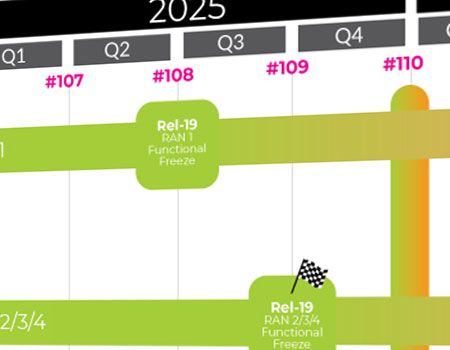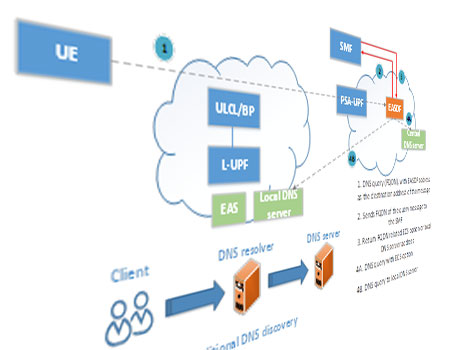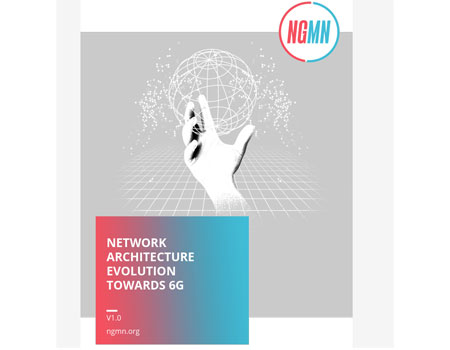By Jean-Michel Cornily, 3GPP WG SA5 Rapporteur for EE work items
Pursuing its work on Energy Efficiency (EE) and Energy saving (ES) of mobile networks, 3GPP SA5 has, in Release 17, extended its scope from RAN only to the whole 5G system. EE Key Performance Indicators (KPI) have been defined for the 5G core network and network slices.
As for RAN, their Energy Efficiency is defined by their performance divided by their Energy Consumption (EC), where the definition of the performance depends on the type of network entity it applies to. From this, SA5 work aimed at defining the best metrics for each of them, and their measurement method.
Performance of network slices has been defined per type of network slice, namely for enhanced Mobile Broadband (eMBB), Ultra-Reliable and Low Latency Communication (URLLC) and massive Internet of Things (MIoT), whereas user plane traffic volumes have been considered to define the performance of the 5GC.

To measure energy consumption, a bottom-up approach has been adopted, starting from assessing the EC of Network Functions up to 5GC and network slices. Whereas how to measure the EC of Physical Network Functions (PNF) has been defined by ETSI EE a long time ago, the page is still blank regarding how to measure the EC of Virtualized Network Functions (VNF). SA5 has defined a method to estimate it, based on the estimated energy consumption of the underlying virtual compute resource instance(s), i.e. Virtual Machine(s) (VM). In Release 17, only the virtual CPU usage of VMs, obtained by the Operator’s OSS from ETSI NFV MANO, has been considered in their EC estimation.
3GPP SA5 has defined mechanisms to collect, via OA&M standardized APIs, measurements from the 5G Network Functions, whatever the type of measurements, including performance and Energy Consumption related measurements, via a common OA&M channel.
SA5 has also introduced, in its Network Resource Model, attributes enabling Network Slice Customers (NSC) to express their requirements with regard to the energy efficiency of the network slice they order, based on GSMA NG.116 (Generic Network Slice Template), and be periodically informed of the actual energy efficiency of the network slice they obtained.
All this work has been done with constant communication with ITU-T, GSMA, NGMN, ETSI EE, ETSI NFV, 3GPP SA2 and RAN working groups.
During Rel-18, WG SA5 will pursue its efforts in various directions, including:
- Work with ETSI NFV to obtain more accurate virtual CPU usage measurements from ETSI NFV MANO, as currently defined measurements lack accuracy,
- Introduce additional metrics when estimating the Energy Consumption of Virtual Machines, e.g. their virtual disk or link usage,
- Extend our existing solution to Container-based Network Functions (CNF), in addition to VM-based Virtualized Network Functions,
- Investigate new use cases for Energy Saving, applied to NG-RAN, 5GC and network slicing. AI/ML assisted energy saving scenarios will be studied, including those based on analytics provided by the Management Data Analytics Function (MDAF) or NWDAF,
- Introduce first considerations on digital sobriety in SA5. Considering that the amount of energy consumed by Network Functions has dependency on data, signaling and OA&M traffic volumes to be processed / transported / stored by Network Functions, we’ll introduce such considerations when designing future OA&M solutions.
This article first appeared in Highlights, Issue 4.


 Technology
Technology




